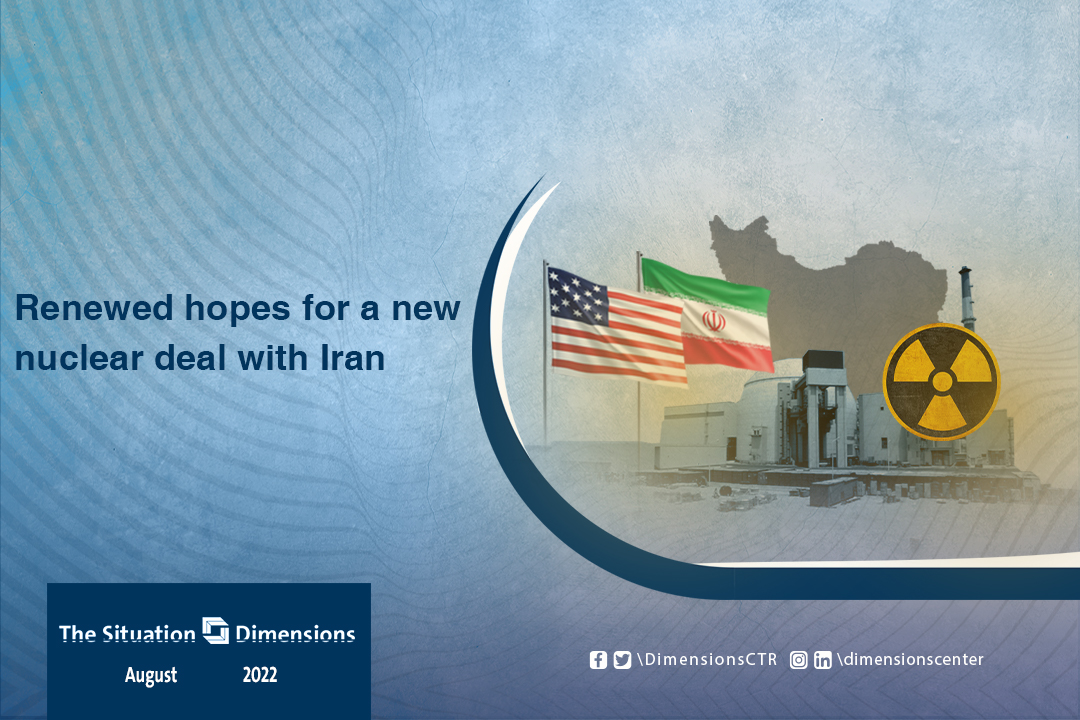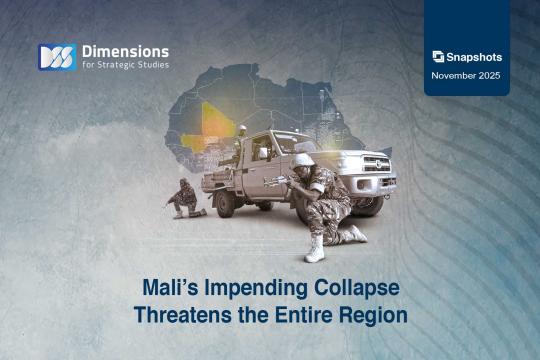
Renewed hopes for a new nuclear deal with Iran
2022-08-221698 view
After marathon rounds of negotiations in Vienna under the auspices of the European Union in order to reach a new nuclear agreement with Iran, it was announced in early August 2022 that a draft "final text" had been reached. Iran has revised the text and handed over its notes on it in the middle of the month, and the United States is still reviewing the Iranian notes, and its response has not yet been delivered.
According to the draft "final text" before the notes and amendments of Iran and the United States, the new agreement provides for the revival of the 2015 agreement in four stages. The new agreement includes the possibility of removing 150 Iranian financial entities and 17 Iranian banks from the sanctions lists on the day the agreement is signed, and Iran will receive American guarantees of relief from American sanctions for two and a half years.
In return, Iran will gradually reverse its steps to enrich uranium; and the new agreement will make it far from producing a nuclear bomb.
It is expected that the agreement will allow Iran to access about $100 billion of frozen Iranian funds, and will also enable Iran to raise its oil production significantly, to reach about three million barrels per day, which is twice the current production, which will also affect the future financial resources of Iran. .
Iranian negotiations with the United States had entered a phase of stalemate for several months as a result of Iran's insistence on adding the "Iranian Revolutionary Guards" to the list of entities off which sanctions should be lifted (the Revolutionary Guards were added to the list by President Trump in 2019), and the Biden administration rejected this demand, even if this leads to the failure of the entire agreement.
Reaching a final agreement; however still faces a number of major obstacles, the most important of which is the Iranian demand to add American guarantees that compel the incoming administrations not to retreat from the agreement, by adding “penal terms” that compensate Iran financially in the event that this happens, which is rejected by the Biden administration.
It is mentioned that the lifting of sanctions is done through executive orders issued by the president and not through a treaty between the two countries; therefore, any president can retract executive orders and issue reverse orders without any obligations towards the country concerned. In addition to that, there is the Israeli obstacle, as Tel Aviv believes that the agreement allows Iran to access huge financial resources, and relieves it of the state of pressure caused by the sanctions, which will allow Iran to further expand its intervention projects in the region.
In general, Iran may be facing the last chance to reach an agreement, as the United States will witness midterm elections next November, which are expected to restore Republican control of Congress, and therefore the chances of reaching a new agreement will greatly diminish. Although Iran faces a fundamental problem of the possibility of the next administration's retreat from the agreement, and thus return to "point zero" again, it has, in return, an immediate opportunity to recover its frozen funds and revive its economy for at least two and a half years. It seems that this opportunity is what prompted the administration of President Ibrahim Raisi, which is close to the Revolutionary Guards, to show surprising flexibility in the negotiations, in an attempt to anticipate the time before the US midterm elections.
As for the Biden administration, it will obtain from the agreement an important external achievement before the midterm elections, especially since the first nuclear agreement was one of the most prominent achievements of the “Obama-Biden” administration, and therefore its revival carries an important personal dimension for President Biden. Add to that the return of Iranian oil to the market before the onset of winter, which will significantly help reduce oil prices, which will positively affect the United States and its allies, at a time when the American administration is fighting a battle to end European dependence on Russian oil.





